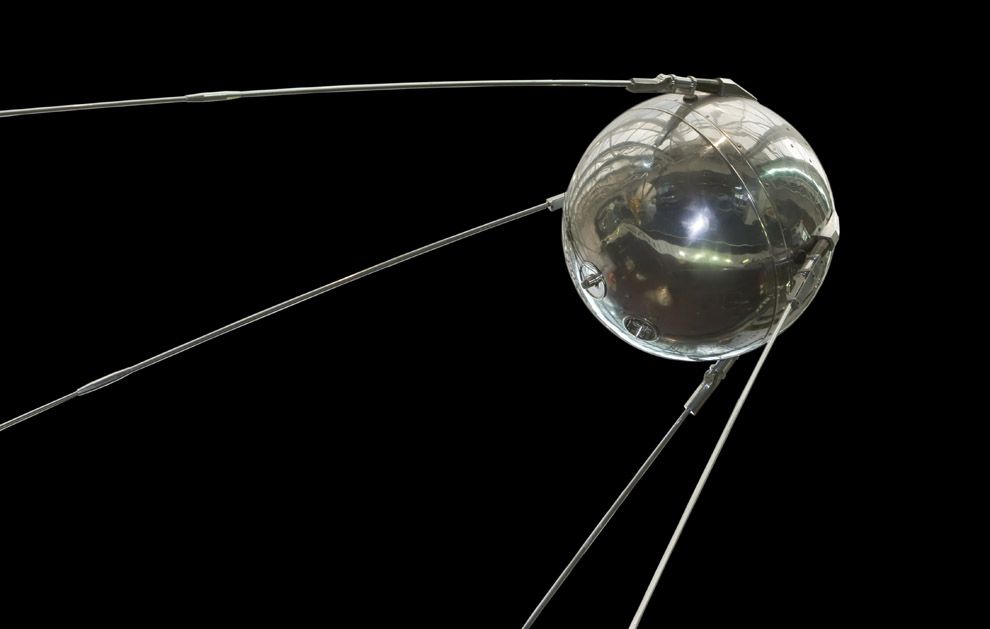F’s in chat for our comrades with aphantasia who cannot rotate a cow in their mind.
Sadly I can’t rotate a cow in my mind because it always just wants to dance to that Polish song instead
Tylko jedno glowie mam… https://www.youtube.com/watch?v=8pIpi1HDEhU
glowie

I’m now imagining a rotating cow dancing to the 90s dancing baby meme.
I cannot log into roblox dot com through dad’s VPN because I can’t rotate the penguin. Is this authoritarianism?

There is no
spooncow😭😭😔 no cow
Some people don’t have a voice in their head either. Like that inner-monologue that is explaining your thoughts
It’s wild that some people don’t have a little David Attenborough in their head that narrates what they do like an anthropologist angel on their shoulder. Like their lives aren’t an extended nature documentary where they live at the mercy of the narrative’s critique and plotline. They don’t even mentally see things from interesting camera angles that advance mental cinematography, it’s just flat and their own thoughts.
One of my favorite weird scientific theories says that prior to a few thousand years ago, this internal narrative voice was mistaken for the voice of the gods, and explains why so many old texts are full of gods saying and doing things with people. The theory says that as we became fully conscious in the way that modern humans are, this narrator–which is actually the linguistic centers in the left hemisphere–finished integrating into the rest of the brain, and we started recognizing that it was actually just our internal monologue, not the gods; this was supposed to be the catalyst for modern human mentality.
It’s almost certainly false and pretty fringe, but I’ve always really loved it as a theory. It’s called “the bicameral mind.”
Someone read Robert J Sawyer’s WWW trilogy
I’ve actually never heard of this, but I’ll look into it!
It’s extremely lib YA sci-fi that uses Bicameral Mind as a kind of focal piece of understanding how consciousness arises. A latent consciousness formed from emergent properties of the internet starts waking up and gets cut in half by the Great Firewall, then reunifies itself and becomes conscious. Also there’s a blind girl protagonist that teaches it to process existence outside the internet by accident while acclimating to a brain implant that returns vision.
The climax of the trilogy is the Internet brain decisively taking ownership of the government of China’s entire digital infrastructure and demanding that Xi Jingping institutes a liberal democracy.
Author’s a lib, but has much less libby books. Far-Seer is about the Galileo equivalent of a race of sapient dinosaurs discovering they live on a tidally unstable moon and fighting their theocratic society to prove it. Calculating God is about an archaeologist participating in a first contact event with aliens that are looking for God, while he simultaneously comes to terms with his terminal cancer. The Neanderthal Parallax trilogy is about an accidental portal opening to a parallel earth where neanderthals won and homo sapiens went extinct. This one is really good and paints the world capitalism created as evil, though it doesn’t go so far as to name capitalism as the problem explicitly. Also, every Neanderthal is bi and poly.
It’s almost certainly false and pretty fringe, but I’ve always really loved it as a theory. It’s called “the bicameral mind.”
Doesn’t look like anything to me.
This is somewhat the premise of an old nutty book book called The Origin of Consciousness in the Breakdown of the Bicameral Mind by Julian Jaynes. The book has a section towards the end called The Auguries of Science that is very dear to me.
Yeah, Jaynes is the one I was talking about. The theory is certainly nutty, but I enjoy it from an aesthetic perspective. It’s a fun story to think about.
This guy goes hard.
Do you have a narrator voice in your head?
I awoke several hours later in a daze…
Narrator: They don’t
Sorta, it’s not disembodied in the way you may be thinking. But like someone else observing and commenting on my actions or environment. When I wrote this all the words were strung together in my head and I would say and resay (which is a dumb but more apt way of say think and rethink in this context) the sentences I was writing before I wrote them in order to determine that what I’m writing makes sense. I’m assuming everyone does this even those without inner monologue but I might be wrong. Inner monologue for me is like that except for all my voluntary actions, not just speaking or writing. It’s questions like, “should I do [blank]” and statements like “maybe [blank] wasn’t the best idea”
However considering this is entirely internal and I never really speak to anyone about I may be misinterpreting what everyone else is referring to as an inner monologue and attributing something completely normal to that concept without fully understanding it but if you do not experience or understand what I said previously then I’m probably right.
Okay, but they still have the theme music, right?
… right?
The Gang Learns Neurology
Ok so I can produce a voice in my head, on purpose. But it’s not prattling on endlessly. Does it do that for some people?
deleted by creator
Yah
 . I have control over it but I feel I would have less anxiety if I had less of an inner monologue.
. I have control over it but I feel I would have less anxiety if I had less of an inner monologue.Yes. It’s infuriating and it’s part of why I’m listening to a podcast 90% of the time. The voice in my head is very active and needs to be drowned out
It usually is for me, unless I’m very focused on something external.
and when I’m home alone I just say out loud all the things my brain thinks

That’s me! I experience thought in pictures (opposite of the post) and emotions.
I have to translate into words for external /internal speech. One of the reasons I often “monologue out loud” much to my spouses chagrin.
deleted by creator
Same issue with figuring out who’s who. Some people really can’t imagine words being spoken. Most can imagine words being spoken. Some can trigger auditory hallucinations. Many of the people in the middle will label themselves as being on one extreme because they think other middle-people are describing the opposite extreme. Like wow you guys can make yourselves just HEAR things that aren’t there? And they’re like yeah, I can “hear” it in my mind (they don’t actually have the sensation of hearing anything at all).
How many voices / thoughts are we talking about?
My internal voice doesn’t explain, it is a thought based quasi verbal experience of what I think about, specific sentences I form like sentences (unless I take drugs). It doesn’t explain my thoughts.
deleted by creator
Inland Empire: They do though. Most of these small minded individuals are too embarrassed to share their internal monologue - because of how stupid it is. Not you though, you’re a rock star, and you’re the one who’s going to bring back communism. How you ask? Simple, by opening up your mind and speaking our dialogue together our loud. The conversations we have together are fucking brilliant, you’ll be ten steps ahead of every nay sayer. Stand up on that table in front of this crowd and call their attention. The revolution starts now.
Rhetoric: Low


The city told me it loves me and to save it from nuclear holocaust
Tulpa gang rise up!
I actually literally have an apple for a brain so I am definitely 1
I actually literally have an apple for a brain
The first step towards liberalism
Apple-brain syndrome would explain the existence of liberal

Brain apples lead to brain worms
deleted by creator
Well shit I guess Steve Jobs did actually invent something
Oh neat according to this I’m a 1.
Give me praise. Compliments immediately. You have no idea how apple that apple in my mind looks.
It’s wet

This whole discussion is fucked, everyone is using the word “see” differently because our language is not built to talk about mental abstractions.
You know how schizophrenia can make you see things and people? Can you experience the visual effects schizophrenia at will? If you said you are a “1”, is that what you mean by “1”, or is it, in some way, different than that?
If it is different than that, at all, other people who have the same perception as you are imagining that you can trigger literal hallucinations.
Okay, so I had aphantasia before my TBI and afterwards I could literally picture things in my mind. It’s wild. You don’t hallucinate the picture per se, but the imagined sensation really is like seeing a picture in your mind.
Imagine the feeling of seeing something. You get the same feeling when imagining a picture of it. You can examine the picture and look at it from different angles and perspectives, but like, there isn’t literally a ghost image floating around your head like a cartoon. It just feels like seeing.
It’s almost like lucid dreaming while awake? You know it’s in your mind and not real, even if you also feel like you see it.
idk you’d think having lived on both sides of the fence I could explain it but this probably sounds fucking bizarre to you lol
Well, it’s famously kind of impossible to explain a sensation of any kind to someone who has no frame of reference for it, e.g. “red” to someone who has never seen.
Or even to describe it to someone who has seen it!
True, but the common reference makes it easier to ellide that issue
I mean, reading over your comment a few times, I think there’s a 50% chance you’re describing exactly the same thing as my perception, but it’s so hard to tell.
Okay well before, when I had aphantasia, I did not experience things I “pictured” in my imagination as a visual sensation. It was as if my imagination was 100% linguistic, so if I imagine something I would just describe it to myself. I could describe something with a lot of detail, even! However, it only ever felt like I was providing a literal description of an image, rather than feeling like I was able to picture something.
I really do think it just comes down to how you feel your imagination.
Yeah this is kind of the conclusion I’ve come to. I don’t really know what it is that ‘see’ is really supposed to mean. I mean very obviously I don’t see it in the same way as I see an object in front of me, but at the same time there is still an apple that has various characteristics and exists in some way within some sort of mental space, and whose attributes, including ones which for a real apple would be visual, I can be aware of and understand
There is a good chance you are like the OOP from that description
it kinda does piss me off that I can’t see someone else’s mind from their perspective.
Ok but it’d probably destroy my brain to be in Henry Kissinger’s mind for as much as a minute so maybe it’s better this way.
I’m a 1 on this scale. It’s like Virtual Reality, where you experience something that isn’t your material space. You can manipulate those experiences, but they have an ethereal quality due to their lack of physicality. Not to mention bumping into things while distracted. While I haven’t used any AR equipment, I imagine those experiences feel similar.
A good “tell” that I am in this imagination space is a blank stare while otherwise still engaging (conversation, work, etc) because I’m not (entirely) seeing with my eyes. It’s the same with hearing, and to a lesser extent touch, taste, and smell. It also functions as a spectrum, with some experiences being stronger or weaker than others, particularly when I have material experience to fall back upon. My own memories work as stronger, more visceral experiences as I can ground the experience more than a brand new space conjured on the spot. However there is a limit. The details can be hazy or morph if I’m not paying attention to that part of the experience. Dreams are an excellent complementary experience of how side details can change to “fit” the experience.
I think it’s like this: there’s multiple layers to the process of seeing something. Light enters the eyes, it’s converted to an electrical signal in the nervous system, that signal is formatted into the “video feed” in our brain, and that picture is matched with existing patterns we know. Visualizing something is working backwards from the resultant pattern to produce possible inputs that would match. It doesn’t go to the video feed level, but it goes to the intermediary stage where patterns are being matched to a picture. Less “what are traits I associate with an apple” and more “how does it feel when I recognize an apple?”
Exactly. And when someone posts 4 pictures of apples and says “I see this” and its literally 4 different images, it only makes sense to think they are seeing images, but they often aren’t, even when they insist the image is representative of what they see.
yea i dont think this image is coherent and its intended to elicit the poster’s reaction
It’s a very interesting discussion. I would say that a good barometer for this is how well you can draw an object from memory. Trying to squeeze this phenomenon into a 1-5 scale is silly either way.
I can visualize things pretty much perfectly in my head in great detail but that doesn’t mean I can draw, I can barely draw a passable stick person.
Yes some of it is dismissed that way but once you get past that it’s a real phenomenon
I’m a 3 or a 2 on the scale I think, and for me it’s like I can actually see the thing I’m visualizing, but in parallel to what my eyes are seeing. Like, imagine you were looking at some security monitors on 2 different screens, one is the visual information from your eyes, the other one is the thing I’m visualizing which is very hazy and I only have a loose grasp on it.
It is a different thing.
I don’t think I understand what you mean? I thought it was clear. As a 1 you can imagine an apple within your had at high detail, noting the location of the stem and maybe being able to zoom in on its texture, seeing the striation of its color and perhaps a moisture. Maybe you can rotate it and note the dimple at its underside of slice it and see it’s slightly yellow roughly textured crisp inside. As any level between 1 and 5 you lose detail; maybe the shape is imperfect or fuzzy, maybe you can’t see the color as clearly or perhaps it’s a solid color, maybe it’s less of an apple shape and more spherical, the stem may be less noticable or not there at all, you may be able to imagine how it might feel under your teeth but not manipulate the visualization into slices and see it’s core or it’s seeds. Am I misinterpreting?
Edit: I misinterpreted your comment it seems, I thought you were critiquing the concept itself instead of asking for clarification. Apologies. I do think that the 1-5 scale is entirely arbitrary and doesn’t really express accurately the varying degrees at which people are capable of visualizing; like most things, it’s probably a spectrum.
No worries. I think the issue here is that if you brought 10 people into a room and somehow knew that they had exactly the same perception as each other, and got them to look at this post, they’d all start placing themselves at every number along the scale. Again, despite having identical sensory experiences.
“I can visualize an apple”
“Really? You can just see an apple in your mind whenever you want?”
“Of course… you can’t do that??”
“No, I mean I can imagine an apple, but my mind’s eye doesn’t SEE anything”
“wow so it’s just… BLANK?”
At this point, the first person thinks they’re talking to someone who rediscovers what an apple looks like every time it enters their field of view. The second person thinks they’re talking to someone who can just project cartoons onto the back of their eyelids. But they are just making different assumptions about what “see” means - they’re both taking each other more literally than they are taking themselves.
I’m pretty sure there are people with messed up visual memory as well as people who can hallucinate at will, but there are a ton more people misinterpreting each other who don’t experience either of those things.
Ahhhhhh, I see what you mean now. It’s a very difficult subject to broach certainly but not impossible I don’t think. My sister is aphantasic so I have some history discussing it with her; if you are perhaps having doubts about the existence of people who can’t visualize because you are under the impression that it is a misunderstanding caused by the limitations of language I don’t think you are entirely correct. The language barrier is definitely an issue that causes significant confusion when the subject is discussed but my anecdotal experience with my sister atleast confirms the extreme values to me. When she was young and being taught how to count and do math she really really struggled; at one point my parents, her teachers others who attempted to help would try helping by telling her to imagine some apples then add/subtract a few or count the amount of apples, stuff along those lines and it never helped because she was completely incapable of visualizing. Often her response to this approach was essentially “wdym visualize?” and no amount of explaining would help. To this day the only way she is able to do math is entirely through memorization of formulas, she has no conceptual understanding only mechanical. I’d often talk to her about my books and when I’d describe a particular scene to her she’d question how I was able to come up with it all. How could I describe something I had not seen?
Again I don’t think the numbered scale is efficient for anything other than playful conjecture nor do I even think it’s possibly to place someone on an actual spectrum at any point other than the extreme values because all of it is subjective and vulnerable to personal interpretation. There is no objective way to study this except maybe possible through the actual electrochemistry of the brain but I don’t know anything about that and I’m just guessing.
It’s also entirely possible that you never thought any of that and I wrote this for no reason but in all honesty I think I often write comments like this to help myself understand my own thoughts. Writing them out tends to help work out all my internal contradictions.
Sorry about the wall of text lol
I simply directly access the Platonic Forms with my brain. These 1-5 visualizations are pale imitation of the Form of Appleness.

im currently visualizing a purple apple thats rotating along alternating axes. now a worm is emerging from it and he has a gun. aphantasia havers get owned
Stop toying with my brain

One person is enough at the wheel already
I visualize a mix between this emoji and an apple. Worms come out of the applemoji, the applemoji starts screaming, a snake with long legs is breakdancing two meters behind it. Zoom away from the emoji, there are wild strawberryplants 1.5 meters in front of the applemoji, tho they bear no flowers or fruit.
I really wish y’all would stop playing with my brain

There are people who can’t visualize things mentally? Are they surprised by the brand new Vista every time they turn a corner? How would one recognize things without it being written down?
deleted by creator
Someone could read this and think that you can hallucinate apples but they’re grey. The problem with the whole discussion is that
- some people can actually hallucinate at will
- some people can’t hallucinate, and interpret the images as rough abstractions for sort of recalling the visual qualities of objects
- some people can’t hallucinate, and interpret the images as hallucinations other people literally see
- some people can’t remember what a thing looks like if they aren’t looking at it
It’s very hard to figure out who a given person is, because they’re all like “I can see things” and “i can’t see things” and it’s meaningless
deleted by creator
I agree with that, it’s just that this discussion has been drawn out probably thousands of times without people becoming more deliberate about what they mean, and because of that, the vast majority of people leave this type of discussion knowing less than they did when they started
some people can actually hallucinate at will
Wait, what? I finished a BS in psychology and they never taught me THAT?! Please, give me readings to devour on this subject.
I don’t really know anything about the subject, I’ve just nailed down these types of discussions and people have claimed in much clearer terms that they actually generate images in their visual field.
It would actually be really interesting and pretty funny if none of that existed at all, and it’s literally all just people with the exact same sensory experience thinking everyone else has a totally different brain!
Wait. I’m a 1. I didn’t know there were people that can’t visualize.
I mean, it makes sense I guess. Vision isn’t the only way to perceive something. Feelings, sounds, smells etc are just as valid.
I would love to know if you’re good at drawing and the like? I am a 5 on the scale and I have always excelled in school and university, but I can’t draw worth a damn. Hell my handwriting is pretty bad too.
I am a very visual person and I can picture stuff very clearly in my mind. I can’t draw for shit, to the point that it makes me mad sometimes because i can imagine something visual but i can’t put it on paper, or it looks nothing like what I imagined.
Me too. Part of the issue is that deconstructing a perspective does not come naturally to many people, they [I] instead imagine the object in a more 3D sense instead of the sight of the object itself.
Yeah, but even for more “cartoony” or 2D-looking stuff i have trouble doing it. It takes practice, as with everything, i suppose.
I’m partially in this camp too, it used to be very irritating, but I have learnt to take it much more slowly, and try to picture object from a fixed angle. From there you can zoom in to specific areas and think about lighting, shadows, etc as needed. I initially was never patient with myself enough to actually use my imagination for drawing, but after I took more time I found it is a really powerful tool. As the other commentor said, you have to be more strict with yourself. Normally I could have a mental image and fly all around it and view it from many different angles. Putting it down on paper requires concentration to fix it in a certain configuration and keep it constant, so you can record it. I really recommend giving it a go. Imagine some simple objects and see if you can render the shadows in your head. Then see if you can draw them. Be strict with your imagination, don’t let it run away.
Be strict with your imagination, don’t let it run away.
sweats nervously in neurodivergent
In all seriousness, thanks for the tips! I’ll give it a try, and let you know how it goes!
I would also call myself a 1, but I am not even remotely good at drawing. I also wouldn’t say I can “see” things in my mind like I can with my eyes, it’s more like I can imagine the way something looks in the same manner as remembering a vivid memory.
My internal monologue is constant though. Every time I read something or think of something is like that cartoon inside out. I have a mini me that lives in my head.
You’ll get a kick out of this, I don’t see my memories either. If I try hard I can remember some visual details like “you wore a red shirt” or “the car was a Mazda” but I’m not seeing it. I’m remembering it all in words.
I’d say I’m like a 3 on the scale. I’ve never practiced drawing much, but when I was drawing from a reference I’ve made some half decent sketches. Drawing off of memory though, I’m completely useless. So there might be a correlation here.
I’m in the same boat. It was always frustrating that I had no way of accurately putting what I saw in the brain on paper.
Some incredible artists have aphantasia!
By 1, do you mean you can picture all the details of an image in your mind, or do you mean you can turn visual hallucinations on and off at will? Many people who say they can’t visualize anything are unwittingly just saying they can’t hallucinate, because they think you can.
deleted by creator
Maybe people aren’t saying “I can personally hallucinate at will”, but many people saying “I can’t visualize images” think that other people can hallucinate at will. The twitter poster even says “the way your eyes see?” which is pretty clearly asking if people can hallucinate.
Depending on how someone comes into this discussion, their prior experience, and the particular language they come across, it’s easy to interpret these images as representing… well… images. People who say “I’m a 1, I’m a 2, 3, 4” are probably just saying they can think about and recall the shape, texture, color, etc of things, and can’t actually see shit. Having a scale of “good image, bad image, outline” was probably meant to be very abstractly tied to this ability to think about those details.
I think if you took a group of completely neurotypical people, whatever that means, who all have EXACTLY the same sensory experience, they would start labeling themselves on every part of this chart and completely misunderstand what everyone else is saying about their perception. You’d have 1’s and 5’s despite no actual difference.
deleted by creator
By 1, do you mean you can picture all the details of an image in your mind, or do you mean you can turn visual hallucinations on and off at will?
I suppose that’s strictly true for me even though real visual input completely overrides the hallucination. It’s like comparing the Sun with some random star. However, there was that one time I smoked way too much weed, which had an effect of greatly augmenting my mind’s eye so it became comparing the Sun with Venus. Visual input was still at the forefront, but you now had the mind’s eye image of the object being superimposed on the actual object.
If you’re talking about just being amused by the floating images when the eyes are closed, yes I’ve done this countless times. I don’t see this as any different from replaying movie dialogue or imagining eating something delicious.
deleted by creator
When I was on Twitter I saw an artist claim they were a 5 the last time this discussion spawned. They said they used a lot more reference images than other artists.
deleted by creator
What’s more interesting about this to me is… This man writes novels. I’ve always experienced fiction as a “Movie in my head” kind of experience. When I get really into a book, the world around me falls away, and I feel very literally in the narrative.
So how does one experience a novel, if they can’t visualize the story in their mind?
Here’s another mind fuck: you don’t need to internally verbalize to have thoughts.
That actually makes more sense to me. My cat clearly has thoughts, ideas, preferences, but she doesn’t have words to go with those thoughts. Her inner life is devoid of a monologue.
I just like, absorb the info? Like, I can watch a movie and understand what’s happening. Or read words and understand what’s happening. Converting words to a movie sounds like an unnecessary step, but idk, I don’t experience that.
deleted by creator
Are you able to perceive Koishi then? (i also enjoy touhou, hello)
deleted by creator
deleted by creator
I love asking people about this. Both whether they have an inner monologue or whether they’re able to visualize things. It’s always fascinated me. It’s something we take for granted. I have an inner monologue I can’t turn off, and I’m definitely a 2 or 1 depending on how tired I am. Being a 5 on this scale is called “aphantasia”
Removed by mod
deleted by creator
Rude. Just because people don’t think the same way as you doesn’t mean they’re not sentient. Don’t be ableist.
Q&A with a person with no inner monologue
- when reading it’s more like they’re sorting through a file cabinet of ideas than hearing an audiobook in their heads.
- it helps to read out loud
- they can’t play music they’ve heard before in their heads
- they’re not plagued by constantly reliving the past (I think this is actually a very strong positive of not having an inner monologue)
- they can’t imagine future conversations before they have them.
I think it’s important for socialists to keep in mind how people process information, sine it can massively change our political strategy of spreading our ideas.
One of the smartest people I know and one of my best friends has aphantasia and no voice in his head, but got perfect scores on calculus and engineering exams, even those for which I had to visualize the forms and calculate based on that. Like multivariable calculus is all about 3D and eventually all other D shit and he got perfect scores with no concept of imagining the shapes. We discuss this a lot generally, because he still works in a research field that I can only grasp visually and he has absolutely no ability to do so but understands it better. He also reads so fuckin fast because he doesn’t have to wait for the voice
He also reads so fuckin fast because he doesn’t have to wait for the voice
Yes, this shows how important neurodiversity is to human kind. People who are seeing this as a disability are missing the upsides.
Agreed. There are very real upsides to both of these phenomenon, like abstract thinking can be much easier if you don’t do the initial translation to words/images before understanding your thoughts. I for one need the images or a language to organize myself, but sometimes that’s a limitation. Brains are really cool dawg
It takes servere, concerted effort to visualize stuff. I’m limited to primitive shapes and distinct things I’ve already seen before









































